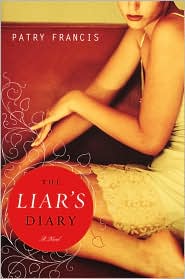No deep thoughts today, so I’ll get my schizophrenic groove on with an interview…
Mini-me: How you doing?
Me: Wow, great interviewing skills.
Mini-me: Just answer the question.
Me: It took me all day to write four pages, one tortured paragraph at a time, and I’m sick again to boot. My throat’s at it; my lungs are congested; I haven’t been sleeping well; I’m headachy and parched—
Mini-me (whispering in an aside to imagined audience): Get out the violins. (Louder:) Right then, tell me about the scene you wrote today.
Me: It was a lighter scene centered around two clerics and a parishioner who lets his dog defecate on church grounds.
Mini-me: Sounds plain silly to me; I trust you wrote this scene for a reason.
Me: Of course, what do you take me for? The dialogue hides a bigger point. In fact, in my previous posts about dialogue I could have discussed this — that dialogue is best when it functions on more than one level.
Mini-me: Enough with the dialogue blah-blah-blah already, yeesh. If I read between the lines correctly on this blog, you suffered a rough writing patch during the holiday season. The writing is flowing better now, I take it?
Me: Slower than I’d like, as usual, but steady. In fact, this week I broke 200 pages on my first draft. Woohoo! (Momentary break to get coughing under control.) For me, that’s a significant milestone — the halfway mark, the light at the end of the tunnel — you get the picture. I’m already looking forward to revisions. Now, THAT’s fun stuff.
Mini-me (sighing): You don’t get out much, do you?
Me: I’ll walk out right now if you don’t quit with the attitude.
Mini-me: Will not.
Me: Yeah, you’re right. Next question?
Mini-me: In a post earlier this month you mentioned your moratorium on reading novels until your first draft is complete. How’s that going?
Me: Okay, so I’m an addict. I fell off the wagon for about a week because I’d forgotten about my book group, the Sassy Lassies. We convened last Saturday to discuss Claire Messud’s The Emperor’s Children (don’t ask). Long story short, while in the library to fetch the book, I had to peruse the Latest Arrivals shelves…and, well, you know. But I’m back to nonfiction again. However, I’ve decided that I was a little extreme; I’ll now be a weekend fiction warrior until the first draft is complete.
Mini-me: Good luck on that. Next up, I heard through the grapevine that you spoke to a writer buddy this week—
Me: Wow, news travels fast. J– said something interesting about her current project. Namely, that she realized that she was writing her novel with her agent in mind. Basically, J–‘s creativity went haywire because of thoughts such as: Will her agent like this novel? Will she still want to represent J–? And so on. Luckily, J– found a way to disentangle herself from these external considerations. She’s since restarted the novel and likes this version much better. Our conversation stuck in my head — as you well know — because it was a vicarious learning lesson for me.
Mini-me: And, last but not least, do you have a favorite quote these days?
Me: Funny you should ask, because I do.
“The secret of happiness is freedom;
the secret of freedom, courage.”
— Thucydides
 How goes my impulsive and self-imposed writer’s retreat, you ask?
How goes my impulsive and self-imposed writer’s retreat, you ask?








